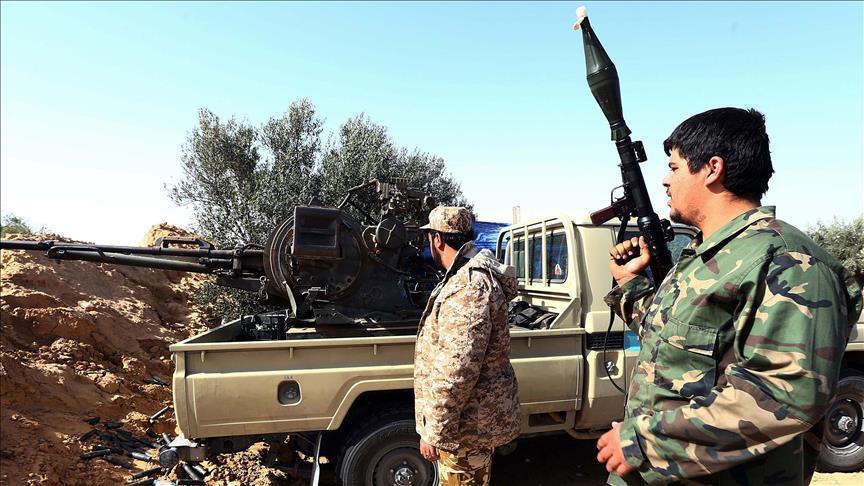Libya unity govt deploys troops to quell tribal dispute
This week saw renewed clashes between southern Libya's Tabu, Awlad Suleiman tribes

By Waleed Abdullah
TRIPOLI
Libya’s UN-backed unity government has sent troops to the southern city of Sabha following the renewal of clashes between rival tribes in the area, the government-linked Seventh Infantry Brigade said in a statement issued late Wednesday.
According to local medical sources, at least two people have been killed in clashes that began earlier this week between two prominent tribes -- the Tabu and the Awlad Suleiman -- based in southern Libya.
While the Awlad Suleiman support the Tripoli government, the Tabu support Khalifa Haftar, a military commander who serves Libya’s Tobruk-based parliament.
According to the Seventh Brigade, Tripoli decided to send troops to Sabha because “innocent people have been killed and Libyan territories have been occupied by mercenaries”.
On Sunday, Hamid Rafi al-Khayali, head of Sabha’s local council, stated that parts of the city -- including its military headquarters -- had been attacked by “foreign armed groups” waving the Chadian flag.
Government forces dispatched to Sabha -- located roughly 660 kilometers south of Tripoli -- include 352 soldiers, 25 combat tanks and nine howitzer artillery pieces, according to the Seventh Brigade.
On Wednesday, Adam Armi, head of the Tabu tribal council, warned the Tripoli government against throwing its support behind one side of the conflict.
He also urged the unity government to “fully understand the truth of the conflict before taking action”.
Armed conflict first erupted between the two tribes in 2012 when Tabu fighters reportedly killed a leading Awlad Suleiman tribesman near Sabha.
Italy later sponsored a reconciliation agreement between the two tribes, which was signed in Rome in April of last year.
Libya has been dogged by turmoil since 2011, when a bloody NATO-backed uprising ended with the ouster and death of President Muammar Gaddafi after more than four decades in power.
Since then, the country’s stark political divisions have yielded two rival seats of government -- one in Tobruk and another in Tripoli -- and a host of heavily-armed militia groups.
Anadolu Agency website contains only a portion of the news stories offered to subscribers in the AA News Broadcasting System (HAS), and in summarized form. Please contact us for subscription options.







